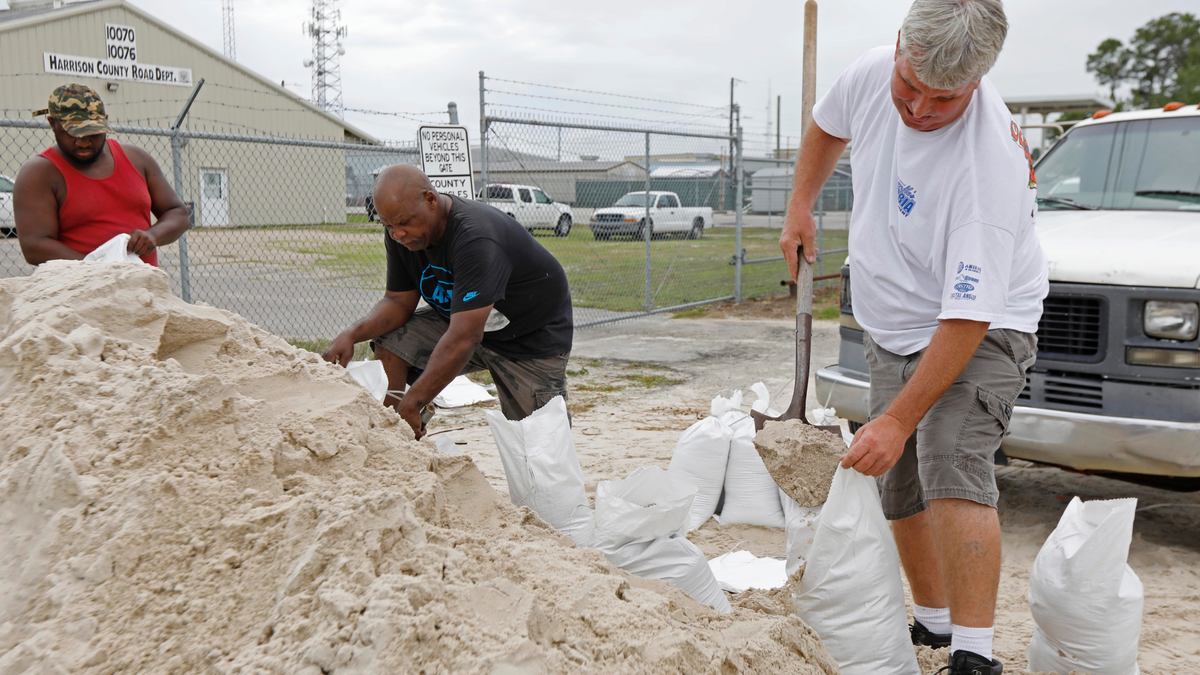
ST. PETERSBURG, Fla. – Florida, Alabama and Mississippi launched emergency preparations Saturday ahead of the arrival of Subtropical Storm Alberto, a slow-moving system expected to cause wet misery across the eastern U.S. Gulf Coast over the holiday weekend.
Cuba was being pounded by rain along its western coast, raising the threat of flash floods and mudslides. The National Hurricane Center in Miami said the island's rain totals could reach 10 to 15 inches (25-38 centimeters) — and even 25 inches (65 centimeters) in isolated areas.
Heavy downpours were expected to begin lashing parts of Florida, Louisiana, Mississippi and Alabama on Sunday. Tropical storm warnings have been issued for parts of Florida and Alabama, saying tropical storm conditions are possible there by early Monday.
The governors of Florida, Alabama and Mississippi all declared states of emergency ahead of the storm Saturday.
About 5 to 10 inches (13-25 centimeters) of rain are possible along affected areas in eastern Louisiana, Mississippi, Alabama, western Tennessee and the western Florida Panhandle. Isolated areas could see as much as 15 inches (38 centimeters).
Under overcast skies and occasional drizzle, several Gulfport, Mississippi, residents lined up to fill 10- and 20-pound (5- and 9-kilogram) bags with sand they will use to block any encroaching floodwater expected as a result of Alberto.
Tommy Whitlock said sandbagging has become a usual event in his life since he lives next to a creek.
"I'm doing this because every time we have a hard rain, it floods at my house," Whitlock said. "We get water from other neighborhoods, and water can get up to a foot deep in some places."
Eddy Warner, a retired consultant for a construction company, filled bags while waiting for his nephew to come help transport them home to protect his garage.
"I'm 65 years old and too old to be doing this," he said, laughing.
Alberto — the first named storm of the 2018 hurricane season that officially starts June 1 — is expected to strengthen until it reaches the northern Gulf Coast, likely on Monday night.
The NWS said waves as high as 18 feet could pound the popular Gulf beaches in Baldwin County, Alabama, and northwestern Florida on Monday. A high surf warning was in effect through 7 p.m. Tuesday local time.
At 5 p.m. EDT Saturday, the National Hurricane Center in Miami said Alberto was about 95 miles (155 kilometers) north of the western tip of Cuba and moving north at 13 mph (20 kph). The storm had top sustained winds of 40 mph (65 kph) and was expected to strengthen as it moves over the eastern Gulf of Mexico.
A subtropical storm like Alberto has a less defined and cooler center than a tropical storm, and its strongest winds are found farther from its center. Subtropical storms can develop into tropical storms, which in turn can strengthen into hurricanes.
A tropical storm warning remained in effect for Cuba's western Pinar del Rio province, where heavy rains could trigger flash floods and mudslides, the National Hurricane Center said.
Mexico canceled its watch for the resort-dotted coast of the Yucatan peninsula, where the storm brought heavy rain. There were no immediate reports of emergencies. In Cancun, local newspapers showed scenes of some streets flooded to mid-hubcap level.
The downpours could dampen Memorial Day, the unofficial start of the summer tourist season along Gulf beaches. Along with heavy rains and high winds come rough seas and a threat of rip currents from Florida to Louisiana that can sweep swimmers out to sea.
Tracey Gasper and her 6-year-old son, Chase, traveled to Biloxi Beach from Donaldsonville, Louisiana, for a day of fun in the sun with a group of friends from Baton Rouge, Louisiana. The weather had scared off the usual crowds expected for the holiday weekend.
"It was a 50-50 chance of whether to come down and we decided to chance it," Gasper said.
